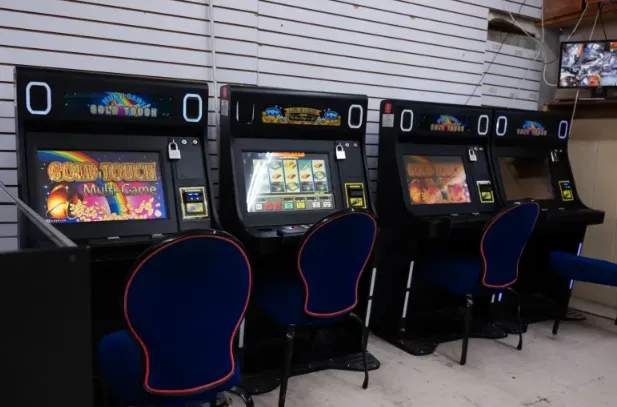Introduction
Although the gaming business has long been connected with large metropolitan centers and busy travel destinations, the spread of gaming outlets into rural areas is becoming increasingly common. Rural areas often provide special difficulties that raise running costs, even if their cheaper real estate prices and less competition would seem to be benefits. Examining infrastructure needs, labor market limits, logistical challenges, and community integration concerns, this paper investigates the hidden expenses of running a casino in a remote location.
The Value Of Rural Areas
For casino operators, rural areas have various incentives. Usually less expensive, zoning rules may be less rigid, and local governments keen to boost economic growth generally provide strong support for land purchase. Rural areas’ financial advantages must be balanced, nevertheless, against the less clear but significant additional expenses. While guests looking for a vacation may find the perfect surroundings of a rural casino appealing, operators may find more complicated management needs and more overhead resulting from these surroundings.
Architectural Needs
Lack of pre-existing infrastructure is one of the main obstacles running a casino in a remote region faces. Unlike metropolitan areas with established utilities, transportation systems, and internet networks, rural communities can demand major investment to construct or upgrade these basics. Not just for running operations but also for providing a first-rate guest experience, casinos mostly depend on consistent electricity, water supply, and internet access. Establishing such infrastructure at far-off sites can be quite costly, usually requiring discussions with utility providers and large-scale building projects.
Restraints In The Labor Market
Many times, rural communities lack a ready-made, trained workforce to satisfy a casino’s staffing needs. Unlike metropolitan areas with more pools of hospitality experts, rural towns might not have people with knowledge of miltonfamilyrestaurant.com gaming operations, customer service, or high-volume food and beverage businesses. This labor shortage drives employers to either pay more wages to draw workers from outside the area or heavily engage in recruiting and training.
Moving employees from metropolitan cities to rural locations might also add more costs. To motivate staff, relocating packages, housing allowances, and transportation subsidies could be required. Sometimes rural casinos even take on the obligation of building employee housing, a cost that adds to the general running load.
Logistical Difficulties
Particularly with regard to the acquisition of products and services, the remote character of rural casinos causes logistical challenges. Urban casinos gain from close proximity to vendors, therefore lowering delivery times and travel expenses. Rural casinos, on the other hand, frequently have more expenses for food and beverages, gaming equipment, maintenance supplies, and advertising materials as well as delays. The higher transportation expenses might also affect waste management since rural locations could lack nearby recycling and rubbish disposal centers.
Seasonal elements can aggravate these logistical problems. For instance, casinos in rural areas with severe winters or lots of rain could find it more difficult to get consistent delivery, therefore affecting their capacity to run. Operators have to consider these possible interruptions and make investments in backup plans including more storage capacity or other supplier paths.
In similar rural regions, even specialized logistics—like coordinating with Nottinghamshire Car Transporters—requires careful planning to balance cost and efficiency.
Marketing and Visitor Attraction
Marketing represents still another major outlay for rural casinos. Rural casinos have more work to draw guests than metropolitan casinos that gain from walk-in traffic and the visibility of being in highly populated locations. This usually entails large-scale advertising operations aimed at both local citizens and possible visitors from greater distances. Commonly used tactics are digital marketing, relationships with travel agencies, and loyalty programs, although they need large financial outlay to be successful.
Oftentimes, promotional initiatives coincide with the necessity to develop a distinctive value proposition. To entice guests to make the trip, rural casinos would have to provide extra conveniences as on-site hotels, spas, or entertainment venues. These improvements help with continuous operating expenses in addition to the initial development charges.
Community Integration and Business Ethics
Running a rural community sometimes entails extra obligations for corporate social responsibility (CSR). With these places, casinos are sometimes expected to promote local businesses, help with local development projects, or assist with community activities. These events represent extra expenses that have to be considered into the business model even while they might promote goodwill and enhance the reputation of the casino.
Furthermore, rural areas could be worried about the social effects of a casino including more traffic, crime, or compulsive gambling. Dealing with these issues sometimes calls for funding community outreach projects, educational programs, and improved security policies. These initiatives not only increase running expenses but also need thorough planning and continuous management to guarantee their efficiency.
Conclusion
Although rural places have special chances for casino operators, they also have a range of extra expenses that have to be properly examined. Running a casino in a remote location is complicated and expensive in part by infrastructure development, labor market limits, logistical problems, and efforts at community integration. Furthermore adding to the financial load are the requirements for sustainable operations, regulatory compliance, and focused marketing.
Rural casinos can nevertheless be a viable business for operators ready to commit in conquering these obstacles. Operators can establish a flourishing company that helps the casino and the surrounding area by attending to the particular requirements of their site and developing close ties with the local population. But success calls for careful preparation, large financial outlay, and continuous dedication to flexibility and creativity.

